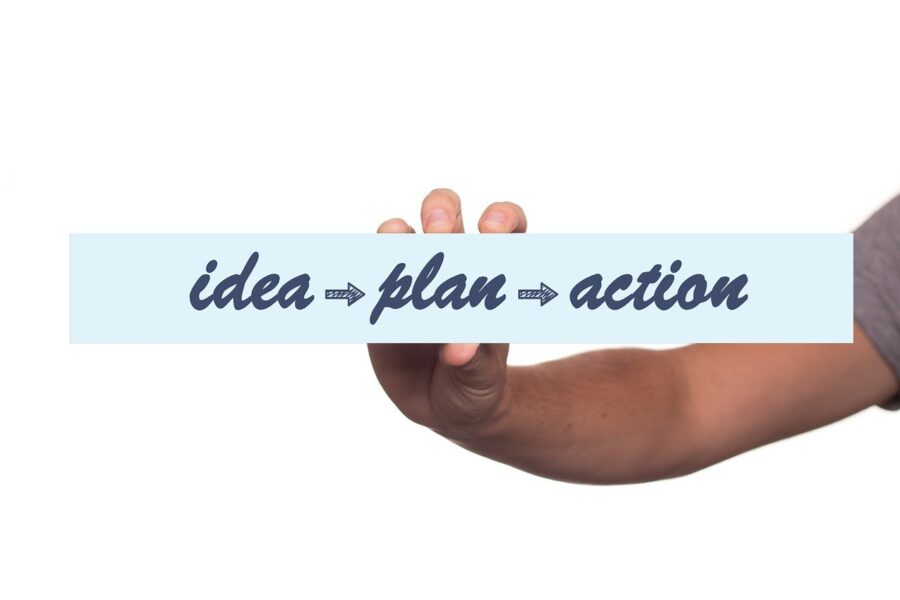Anki is a SRS Flashcards software. These flashcards are fully customisable and use popular SRS or space repetition system software. This software system manipulates when the cards are seen based on the science of the forgetting curve.
One thing to note about using Anki for language learning is that I believe it should be an addition or a supplement to a strong study program for that language rather than being used as the main resource. This is because by itself it cannot teach you the language rather it can consolidate and help you with what you do know.
I will now go over the 3 areas that Anki can be seen to be useful and 3 areas that Anki is seen to not be helpful.
Pros:
- Anki is good for active recall of vocabulary.
Active recall as opposed to passive review means that more words should be in your active, ready-to-use vocabulary. This is because Anki tests each word depending on whether you know it. If you don’t know it, then Anki will show you the card again and again until you do know it.
This means when you’re put on the spot speaking your target language, you are more likely to remember the words you’ve put through Anki and reviewed and reviewed again using this app.
There is also evidence via research that methods that employ the method of active recall are quite effective.

- Anki is a convenient SRS (space repetition system).
What is SRS or space repetition system you may ask? This system is based on the science behind the forgetting curve where one may forget the words for example, if not exposed to it again for a while.
However, when you are exposed to this word you get it right on a flashcard Anki will automatically space out the repetitions so that they get further and further apart. This means that words you struggle to remember will be shown at the forefront whilst words you always get right will be shown in longer spaced intervals of time.
If you had to do this by hand or use paper flashcards to do this then it would be very hard to keep track, especially if one has many flashcards. As a result, many people like the program Anki which does it automatically through its algorithm.
- Anki is excellent for micro-learning.
Micro-learning is the process of learning but in very small bursts for example anywhere between 3 to 15 minutes at a time. Anki is very useful for this also given the mobile apps you can download.
This is because whilst you’re out and about you can use your “dead time” to review your flashcards on Anki. As such you can learn in bite-sized chunks to acquire vocabulary whilst waiting for the bus or train for example or waiting for a friend at a coffee shop.
Cons:
- Not sufficient by itself / for higher-order needs
A vocabulary flashcard is exactly what it is. You can try to give the card context by providing an example sentence or two but it cannot cover all possible avenues of how the word is used in all possible contexts.
This means that Anki flashcards are very useful for simple memorisation but it’s lacklustre when it comes to more complicated language learning needs such as needing to know how the word can be used in all possible contexts.
This means it is useful in combination with other language learning methods, such as comprehensible input.
- It can easily become very overwhelming.
This is another significant downside to consider. You can end up with a lot of reviews to cover on Anki so covering new cards may become harder and harder. Also, this may eat into your time that you can use for other language activities such as listening and reading to your target language.
- It can be boring and repetitive
This can be the case, where reviewing Anki flashcards can be mind-numbing at worst and very repetitive at best. This means that a lot of people may not keep up with their reviews because they don’t find it fun to review their flashcards and as such may render this program/app to be useless.
So, if you don’t enjoy flashcards there are other ways around this and other ways to remember vocabulary such as the gold list method or mnemonics which may suit you better, or even at the intermediate/advanced level to read and listen to your target language a lot so that you can naturally acquire vocabulary and grammar.

- Potential cost
However, the app on iOS is not free but rather expensive, costing around £25. However, if you decide that you enjoy the desktop version and other versions of Anki then it is a worthwhile investment.
My thoughts and usage of Anki:
I have generally very positive thoughts and usage of Anki. As such I have spent between 80 to 90 hours using this program and it has helped me a lot to remember vocabulary as well as how to write various Chinese characters.
This is because I believe it uses a smart SRS, which helps me to remember and put more and more words into my long-term memory. This helps me eventually develop a larger active vocabulary and as such, a larger range of vocabulary when I speak my target language.
In terms of language learning, I plan to use Anki flashcards for every language that I learn alongside the flashcards provided on the innovativelanguage101 websites I usually use to study languages.
Conclusion:
Overall, I feel that Anki is a very good, free app that can help any language learner to reach their goals. It, as a supplement to a good language course, can be incredibly beneficial for the active recall of more words, and to have a larger range of words to use in conversation, writing and otherwise.
What’s your opinion? Let me know in the comments below.





Leave a Reply